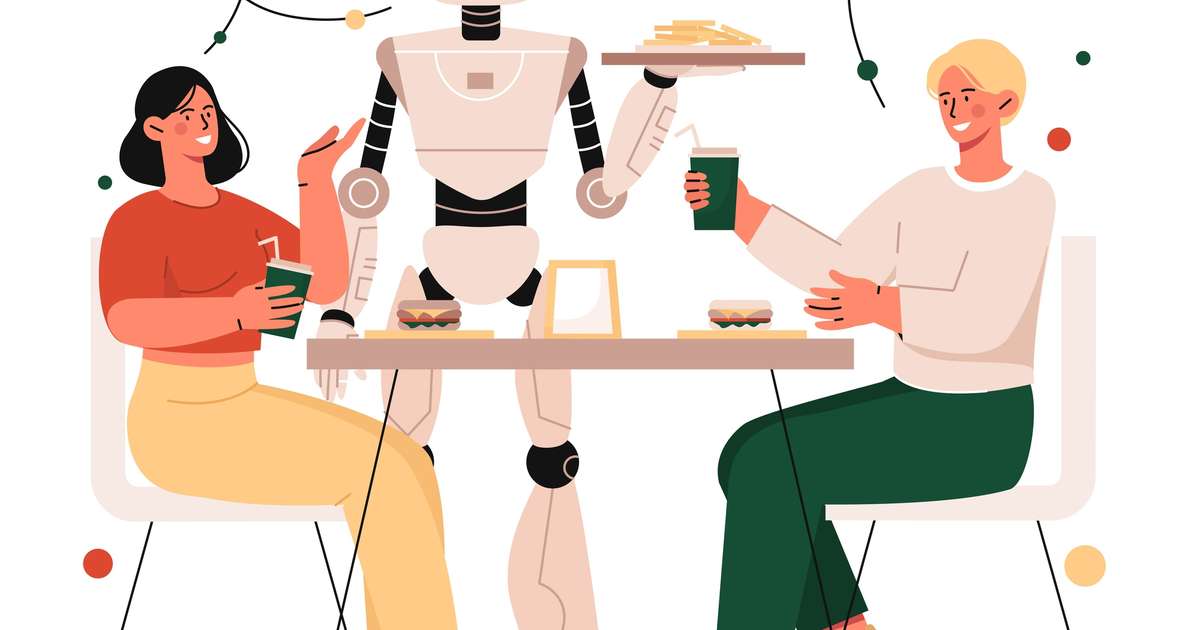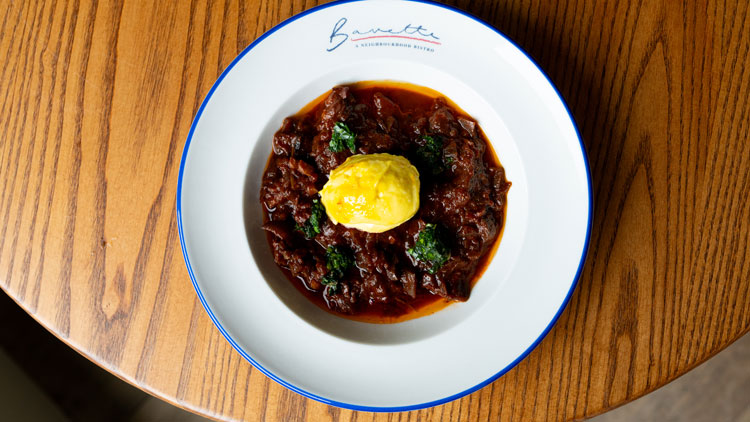
Artificial intelligence is fundamentally transforming the restaurant industry, with personalization emerging as perhaps one of the most significant developments. Unlike basic personalization that might simply remember a customer’s name or birthday, Artificial intelligence-driven personalization leverages advanced algorithms, machine learning, and large datasets to anticipate needs, personalize offerings, and create seamless experiences uniquely crafted for each individual. As reported by Statista the global food service market, valued at $2.52 trillion in 2021 and projected to reach $4.43 trillion by 2028, is increasingly embracing these technologies. So how will AI-driven personalization in restaurants reshape guest experiences over the next five years? What are the current applications, emerging trends, technological elements, and implications for businesses and consumers?
The Current State of AI in Restaurants
Today’s restaurants employ artificial intelligence across various operational areas, from customer interfaces to back-of-house systems. Digital ordering platforms, inventory management systems, and basic loyalty programs represent the current state of implementation; however, these applications often remain relatively simple compared to what’s possible. Most restaurant personalization still operates on simple rule-based/expert systems rather than machine learning algorithms, with recommendations typically relying on straightforward analysis of past purchases rather than incorporating contextual factors or predictive modeling.
More advanced personalization builds on these basic approaches by incorporating contextual awareness, predictive capabilities, and continuous learning. Key components include comprehensive data collection across multiple touchpoints, advanced analysis techniques that transform raw data into actionable information, real-time implementation mechanisms allowing for dynamic adaptation, and predictive modeling to anticipate service. The difference becomes evident when comparing traditional loyalty programs that might send birthday discounts versus systems that notice a customer typically orders delivery on Thursday evenings when working late and proactively sends personalized suggestions timed to arrive just as they are considering food options.
Several factors have restricted advancement: data fragmentation across multiple systems, limited technological infrastructure (particularly among smaller and/or independent establishments), privacy concerns, and cultural resistance to technology approaches in traditional customer service industries.
The Future is Now
In the next one to two years, menu personalization will evolve from simple memory-based systems to sophisticated recommendation engines analyzing the components of favored items to understand underlying taste preferences. Rather than merely recalling that a customer previously ordered a particular dish, these systems will identify patterns and recommend new items that match these preferences, even if they bear little resemblance to previous orders.
Dynamic pricing strategies will become more personalized, with loyalty program members receiving individualized pricing based on their specific purchasing patterns and price sensitivity. Voice and facial recognition will transform restaurant experiences, particularly in mid-scale and above establishments where personal recognition has traditionally been a standard of quality service.
Looking three to five years ahead, ambient intelligence will transform restaurant spaces into responsive environments that adapt to individual customers. Smart tables equipped with embedded displays might present personalized menu options, highlighting dishes that align with taste profiles while de-emphasizing those containing known allergens or disliked ingredients.
Predictive ordering and preference anticipation will evolve from recommendation systems into active anticipated experiences. These systems will incorporate an expanding array of factors like weather conditions, day of week, time of day, the customer’s schedule, potential activity from fitness trackers, etc. to predict what would most satisfy the customer at that particular moment.
Emotional recognition and mood-based recommendation systems represent another area of exploration, with advanced computer vision and voice analysis technologies enabling AI systems to detect subtle indicators of a customer’s emotional state and adjust recommendations accordingly. Integrated with wearable technology and health data will create new dimensions of personalization that bridge dining experiences with overall individual wellness goals.
The Guest Experience & Operational Impacts
Advanced personalization will reshape the entire guest experience. The pre-dining phase will feature discovery platforms that present personalized recommendations based on taste profiles, dietary requirements, occasion context, and even current mood identifiers. Upon arrival, recognition systems will alert staff to the customer’s presence and preferences. Digital menus will adapt in real-time to highlight dishes likely to appeal based on the specific background information, while ambient intelligence systems will adjust the environment and service timing to individual preferences.
Operationally, staff roles and training requirements will shift to emphasize human-AI collaboration. Front-of-house staff will need to understand how to access and utilize AI-generated information about customer preferences, while kitchen staff must adapt to more dynamic production schedules driven by predictive ordering systems. Inventory management will become increasingly precise through AI systems that predict not just overall demand but specific ingredient requirements based on individual customer preferences and historical ordering patterns. Focusing on these granular details to improve inventory controls will also optimize food storage requirements.
The initial investment in these technologies will be substantial: hardware infrastructure, software licensing, data integration, training, and ongoing maintenance contracts; however, McKinsey research indicates that effective personalization can increase customer retention rates by 20-30% and boost average order values by 10-15% compared to non-personalized experiences. Operational efficiencies represent another significant source of ROI, with AI-driven inventory management potentially reducing food waste by 20-40%.
Current Use Cases & Insights
Papa John’s partnership with Google Cloud demonstrates comprehensive implementation of advanced personalization, focusing on personalized push notifications, tailored loyalty offers, and voice-enabled ordering. Preliminary data shows personalized push notifications achieving redemption rates approximately 32%, compared to a 2% click-through rate for traditional digital advertising.
Yum Brands’ partnership with Nvidia emphasizes voice recognition technology and real-time analytics for drive-thru services. Order accuracy has improved compared to traditional human operations, while average transaction times have decreased.
Panera Bread’s MyPanera loyalty program represents one of the longest-running implementations, with members visiting approximately 70% more frequently than non-members and personalized recommendations increasing average order values by approximately 20%.
Industry leader Danny Meyer predicts that the restaurants that will thrive in the next five years are those that use technology to enhance rather than replace human connection. AI will handle the transactional elements of personalization, remembering preferences, optimizing timing, suggesting options, which frees staff to focus on the transformational elements that only humans can provide.
Diago’s Johnnie Walker Experience provides guests with personal flavor preferences mapped with drinks tailored to their palate, identified through a flavor quiz. This AI FlavorPrint system allows for a remarkable range of choices, with over 800 potential drink combinations.
We should anticipate a fundamental shift from explicit to implicit personalization in restaurants. Instead of requiring customers to actively provide preferences or feedback, AI systems will increasingly infer preferences from subtle behavioral cues.
Conclusion and Implications
AI-driven personalization represents a paradigm shift in how restaurants understand and cater to individual guests. For restauranteurs, these capabilities will become a competitive necessity rather than a differentiating luxury over the next five years. For technology providers, the opportunity lies in creating solutions that address the full range of personalization needs while respecting privacy and integration challenges. For consumers, these developments offer dining experiences focused on individual preferences, with considerations related to data sharing and privacy.
The future of dining will be personalized, but it will still be primarily human. The restaurants that thrive will be those that use AI not as a replacement for human hospitality but as a tool that enables more meaningful human connections by creating experiences that feel both technologically sophisticated and personal.
Joe Cilli
Assistant Dean and Director of Distance Learning
FIU









